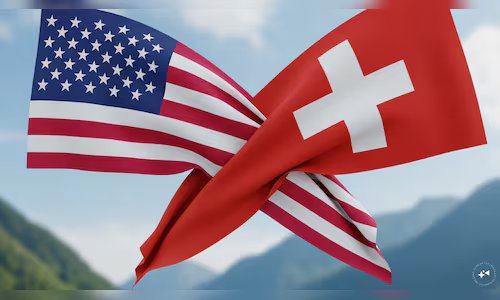Both the US Trade Representative Jamieson Greer and the Swiss government confirmed the development on Friday, with full details expected to be released later in the day.
The tariff cut brings Switzerland in line with the rate the US applies to imports from the European Union, reversing one of the highest country-specific duties imposed by the Trump administration.
The previous 39% tariff, implemented in July after a Swiss delegation failed to secure an agreement in Washington, had delivered a heavy blow to Switzerland’s export-driven economy.
Swiss Economy Minister Guy Parmelin, returning from negotiations in Washington, said the two sides had “clarified virtually everything,” though he declined to elaborate until all details are finalised.
A government statement later confirmed the tariff reduction and noted that Switzerland would provide further updates once the agreement is formally completed.
The deal comes as a welcome relief for Swiss manufacturers. Industry group Swissmem reported that exports to the US fell 14% in the quarter ending September, while shipments of machine tools plunged 43%.
The tariff rollback, Swiss officials say, should stabilise the economy and prevent further job losses.
In return, Switzerland has pledged to significantly deepen its economic footprint in the US. The Swiss government announced that Swiss companies will invest $200 billion in the United States by the end of 2028, including funding for education and skills training.
The pledge builds on commitments by major firms such as pharmaceutical giant Roche, which earlier this year vowed to invest $50 billion in American operations.
Greer, speaking to CNBC, said the agreement would boost American manufacturing as Switzerland prepares to shift production of pharmaceuticals, gold smelting and railway equipment to the US.
“We’ve essentially reached a deal,” he said, calling it a significant step toward expanding industrial capacity in the United States.
The agreement follows a string of trade deals the administration announced this week with several Latin American nations and appears to reflect a broader effort to ease tariff pressures amid concerns about consumer affordability.
Following the announcement, the Swiss franc rose 0.4% against the US dollar, reflecting investor optimism about the easing of trade tensions.
The full contours of the agreement are expected to be released later on Friday by the White House.

